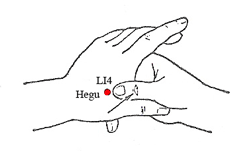 When discussing about fetal movement, every baby behaves differently in maternal womb. It is important for a mother to know what happens inside her body in order to make sense why and what to expect in the future weeks and months.
When discussing about fetal movement, every baby behaves differently in maternal womb. It is important for a mother to know what happens inside her body in order to make sense why and what to expect in the future weeks and months.
When Do You Feel the Baby Move?
Mother can feel their baby’s movement during 13 to 16 week of pregnancy. Quickening or first fetal movement is described often as flutters. It is difficult to identify whether the occurred feeling is baby’s movement or gas. However, after some time a mother can clearly notice a pattern. Fetal movements may be slightly later perceived by mothers who are pregnant for the first time (by the 18th to 20th weeks of pregnancy).
It is important to know that every woman experiences different pregnancy issues, so do not compare your pregnancy with your friends or other pregnant mothers. If you are a second time mother, it is usually easier to detect fetal movements as early as 16th week. However, if a mother is unable to feel the movement of baby by the 24th week, it is highly recommended to consult your doctor. The obstetrician will examine the baby, listen to baby’s heartbeat and arrange ultrasound scan if necessary.
How Do Babies’ Movements Feel?
After knowing when do you feel the baby move, the next step is to know what normal baby movements feel like.
|
Timeline |
Descriptions |
|---|---|
|
20 to 24 weeks |
With time the activity of baby increases at a steady pace. A mother will notice that her baby seems livelier in day time whereas in evening are usually somersaults and kicks. Soon a mother recognizes the unique activity patter of her baby. |
|
24 to 28 weeks |
By this time, a mother can easily notice baby’s hiccups by experiencing a jerky movement. At this stage the amniotic sac contains about75oml of fluid which gives baby enough space to move freely. A mother may also notice her baby jumping at abrupt noises. |
|
29 weeks |
During the 29th week of pregnancy the baby starts to move in definite movements. |
|
32 weeks |
At this stage of pregnancy a mother will notice that her baby’s rapid movement tails off due to lesser space in womb. |
|
36 weeks |
Baby will take his final head down position at this stage of pregnancy. The stiff muscles of tummy and uterus can offer some degree of restraint to the active baby. Movements a mother may notice at this stage are jabs from baby’s legs and arms with some painful kicks on ribs. |
|
36 to 40 weeks |
The baby is getting larger now and would not roll more often. Instead the baby constantly kicks underneath on both sides of ribs. At this stage the baby has learned sucking her thumb and if it pops out from mouth then a mother will feel darting head of baby side by side as if the baby is searching thumbs again. By now the baby is properly nestled in pelvis of mother and is ready to born. |
How Many Kicks Should You Feel Each Day?
The number of kick per day varies and is not the same every day. Maintaining kicking record chart is also useless as they are not helpful in telling any problem. Instead, notice the movement pattern of your baby throughout your awake hours as it is much easier to remember the baby’s rhythm. Every baby behaves differently that is why their pattern of sleeping and waking are also different; therefore a mother will know soon what is regular for baby. However, if any significant change in the movement pattern of your baby (that is unusual or alarming) should be immediately discussed with a healthcare professional or midwife in order to ensure the safety and well-being of the baby.
What Should You Do If You Do Not Feel Babies’ Kick Today?
Here are some quick ways which encourage your baby to move; in case you are experiencing low activity.
- Place your feet upward, eat a snack and relax. Sometimes babies are asleep when a mother is moving around but when you stop the baby wakes up.
- Drink anything chilled. The baby does not like this change in temperature and he or she will try to get away with this by moving in womb.
- Make your surrounding noisy by playing music loudly or slam the door and notice the baby’s response.
- By doing these things if the baby shows any response, then it is likely that everything is great. But you should keep an eye on baby’s movements and seek medical assistance if there are abrupt changes in the pattern.
When to See a Doctor?
Contact your doctor or midwife if:
|
Cases |
Descriptions |
|---|---|
|
1 |
A mother does not feel any fetal movement for two hours. |
|
2 |
The baby does not show any response or moves on loud noise. |
|
3 |
A mother feels decline in baby’s movement or it is decreasing gradually with time. |
Important Notes:
If you feel that the baby is not moving at a normal pace, it may indicate that the fetus is not receiving enough oxygen or nutrients via placenta. If this is true then your doctor will refer you to fetal or maternal assessment unit. The team of doctors and midwives will examine and monitor baby’s heartbeat, measure the size of the baby and the quantity of amniotic fluid which surrounds the baby. Urgent and emergent care decreases the risk of any unlikely event.






